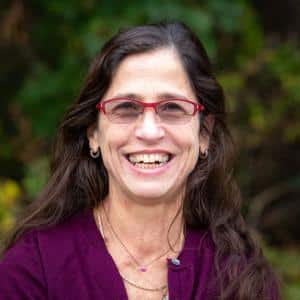We’ve reached that point in the fall where the colorful patterns around us begin to dull, and hints of winter start to appear. For our natural surroundings, there’s some rest ahead. For us, however, there’s still more work to be done!
This Sunday, we have our final garden workday for the fallan annual gathering to put the garden “to bed” for the winter. In what is, to me, a joyous shared ritual, we will cover the beds with hay and put down additional mulch on the paths. We will also weed, rake, clear, and prep the beds to protect them from the worst of the winter weather. It’s time to take care of the garden and let it rest to regenerate healthy soil for spring planting and growing.
It has been another bountiful year for the BDS garden. We have had many great learning experiences with our young gardeners, from summer campers to our middle school club, from pre-kindergartners picking potatoes to second graders harvesting marigolds.
Our pre-k class triumphantly pulled over 75 pounds of potatoes from the garden last month. The digging was messy and fun, and the students and their teachers extended the garden learning back to the classroom. The pre-k students read a book about potatoes, conducted a taste test between mashed and roasted potatoes, and predicted the inside color of the blue, red, and brown-skinned potatoes. They also harvested one of the largest potatoes ever grown at BDS!
Our bees are also now settling down for the winter; we fed them a sugar syrup earlier in the fall to keep their nutrients up as the weather turns colder. The bees will cluster in their hive, and their primary job all winter is to keep the queen warm.
Central to the mission of the garden program is the lesson of service and helping those around us who are in need. Each growing season, we donate much of what is grown in our garden to FoodLink, a food bank that distributes locally grown food to community-based organizations. From our little plot and our community’s efforts, we contributed over 200 pounds of healthy vegetables.
What is not donated helps nourish this community. Our creative kitchen team uses all sorts of vegetables and fruit from the garden to fuel our bodies and minds. Tomatoes, beans, herbs, peppers, cucumbers, squash, and lettuce, to name a few, become some of our community’s most beloved dishesthink pesto and roasted squash soup.
And finally, our compost continues to cook away thanks to the work of many. Contributions from all classrooms and the kitchen are now going to Black Earth Compost and we can compost much more through this vital partnership. Our food waste goes to Black Earth and in turn, we will receive compost in the spring to enhance our soil’s fertility. This cycle of growing, eating, and composting is a vital part of our garden’s ongoing success.
I can’t wait for this Sunday and the opportunity to share again in caring for the garden with students, families, and fellow faculty. We’ll earn a little rest ourselves and rejoice in looking ahead to seeing the garden come alive again in the spring.
